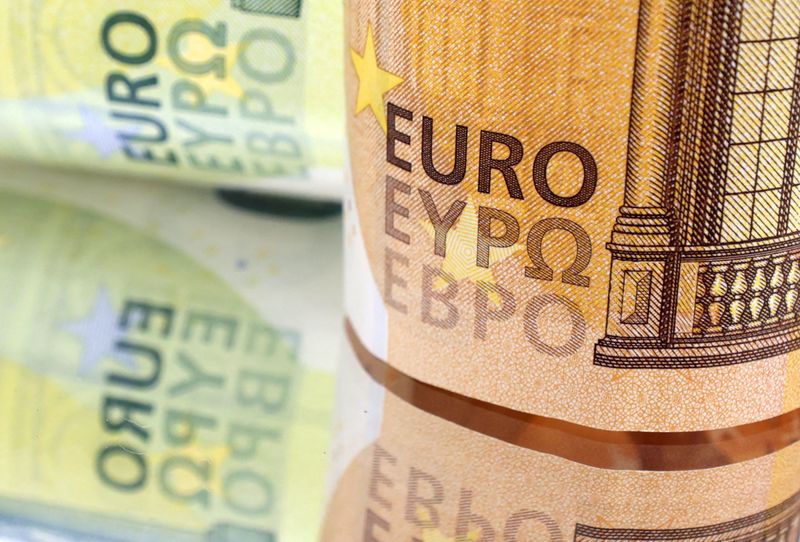By Francesco Canepa and Leigh Thomas
FRANKFURT/PARIS (Reuters) – “As a result of it is France” was how Jean-Claude Juncker, European Fee president on the time, defined Brussels’ determination in 2016 to provide leeway to the massive, founder member of the European Union on the bloc’s funds guidelines.
That endurance continued even because the EU endured a sovereign debt disaster that nearly sunk the euro and compelled smaller, extra indebted nations akin to Greece and Portugal to undertake swingeing austerity measures.
However any indulgence for French exceptionalism might come to an finish if France’s snap election produces a eurosceptic, far-right authorities in Paris that might pressure ties with different European capitals and check the very foundations of the euro mission.
Marine Le Pen’s Nationwide Rally (RN) insists it will not blow up the French funds. However questions persist about how it will fund expensive spending plans throughout the eurozone’s newly minted funds guidelines and whether or not the European Central Financial institution might step in to assist if monetary markets activate France.
“If a rustic can simply ignore the foundations and be helped by the central financial institution, you may get plenty of doubts concerning the future worth of the euro and the long run cohesion of the euro,” stated Holger Schmieding, an economist at Berenberg.
Such considerations usually are not on the official agenda of Thursday’s EU summit. However with the RN main polls within the two-round vote beginning June 30, they’re certain to occupy the minds of President Emmanuel Macron’s fellow leaders.
Senior German authorities sources stated they had been dismayed by Macron’s shock determination to name elections that might usher in an RN-led authorities. One in contrast it to former UK premier David Cameron’s ill-fated gamble on an “in-out” Brexit referendum.
In Italy, with a good greater debt pile than France, a tinge of Schadenfreude over France’s misfortunes is offset by fears {that a} French disaster might lengthen throughout the Alps, stated Francesco Galietti of Rome-based political danger guide Coverage Sonar.
Otmar Issing, the ECB’s first chief economist and one of many euro’s architects, in contrast the debt of Italy and France to “a sword of Damocles hanging over the financial union”, certain to fall except the issue is tackled.
“You’ll be able to pull the hair by which it’s hooked up nevertheless it can not maintain for ever,” he stated in an interview.
Even Greece is just not chopping France any slack, with central financial institution governor Yannis Stournaras stressing that every one member states wanted to respect EU guidelines.
NO MORE INDULGENCE
Polling factors to the RN rising as the biggest social gathering, with or with no clear majority to pursue a clumsy “cohabitation” with Macron till the 2027 presidential election.
France’s fiscal credibility is already at stake with the Worldwide Financial Fund questioning the way it will scale back a funds deficit working at round 5.1% this yr and its credit standing downgraded by two companies.
In reality, France’s fiscal sins far pre-date Macron. It has run funds deficits larger than the EU-mandated 3% for a lot of the 25 years since these guidelines got here into power.
Brigitte Granville, economist at London’s Queen Mary College and writer of “What ails France?”, stated its rejection within the Nineteen Nineties of German proposals for extra full political union mirrored a need to retain sovereignty over its funds.
She anticipated the RN, which way back dropped calls to go away a single forex broadly accepted by French voters, to average its plans simply sufficient to please Brussels if it got here to energy.
“They do not have a selection except they wish to go away the euro,” Granville stated in an interview.
RN statements to that impact have reassured traders, who had been demanding a premium of simply 70 foundation factors to personal 10-year French bonds moderately than their safer German counterparts – a far cry from peaks of 190 factors for France and almost 560 factors for Italy through the 2011 debt disaster.
ECB chief economist Philip Lane advised Reuters the strikes within the French bond market didn’t seem “disorderly”, that means they do not meet one of many situations for the central financial institution’s intervention.
CAUTIONARY TALES
Observers level to cautionary tales starting from Greece, the place a leftwing authorities was dropped at its knees by monetary and political stress, to Britain, the place Prime Minister Liz Truss was pressured to resign after unveiling a funds that unnerved traders.
Most analysts emphasise the ECB has the instruments to stem contagion from a French disaster by shopping for bonds of different international locations that do respect the EU’s fiscal framework, that means Paris may discover itself remoted at instances of want.
“There’s, in fact, a risk that Frankfurt would intervene if the issues with France had been to have some sort of exterior damaging results on different international locations, like Italy,” former ECB policymaker Ewald Nowotny stated.
An EU official cited Rome as a mannequin for Paris after Prime Minister Giorgia Meloni toned down her anti-EU rhetoric as soon as elected in 2022.
This, alongside along with her assist for the EU’s stance on conflicts in Ukraine and Gaza, has helped Italy preserve the Fee and monetary markets on-side regardless of repeatedly elevating its deficit forecasts.
Jeromin Zettelmeyer, director of the Bruegel economics assume tank in Brussels, stated RN’s rhetoric so far didn’t counsel it was searching for a serious confrontation with the Fee that might set off a monetary disaster.
Nonetheless he stated that if its officers ended up working key ministries, they might hamper EU strikes to reform vitality markets, advance the inexperienced transition and enhance the bloc’s competitiveness by reforming its capital markets.

“If the far-right will get elected that’s dangerous information for EU integration as a result of they’d management the federal government positions concerned in most dimensions of EU policy-making,’ he stated.
“The query is whether or not that’s reversible or existential.”